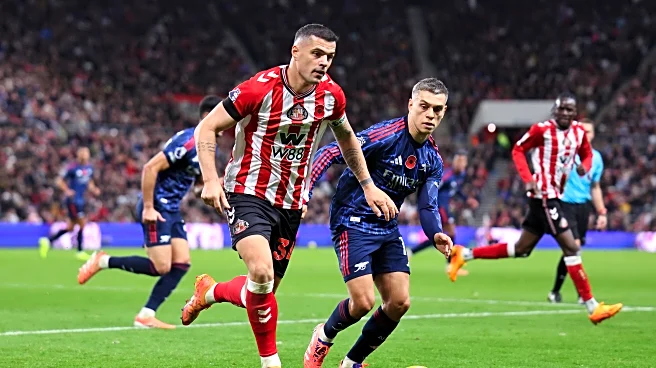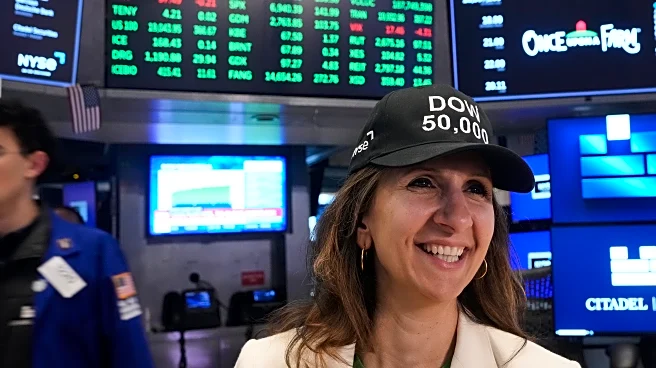When we signed Granit Xhaka in the summer, it’s fair to say a few eyebrows were raised and that many neutrals nodded subtly — as well as acknowledging that for a club just coming up via the playoffs, it was
a bold but potentially strong and ambitious move.
There was an undeniable “feelgood factor” from that point on, although at the age of thirty two (now thirty three) there was also an element of risk recognised by many.
A flurry of strong signings followed the Swiss international through the door, showing the great work done in terms of general recruitment, with a parallel hint that Xhaka’s arrival marked Sunderland out as a very good option for others with similar mindsets and ambitions for their future — and for our project.

However, there were also some questions that stuck in the mind more than others in those early weeks.
Would Xhaka’s legs and lungs still be good enough to run a Premier League midfield? Would he have the same passion and determination to succeed on the “wrong side of thirty” and after a career which had been incredibly successful?
Why Sunderland, too? That was a key one. This sort of positive undercurrent always seems to have a catch, especially when considering players of such stature. Remember the signing of Adnan Januzaj? It was that sort of feeling — is this bloke here to make a difference or because he simply hasn’t worked out elsewhere?
Although the fee for Xhaka was only around £13 million — comparative chicken feed in modern Premier League terms — there were as many questions as answers before the season commenced.
Ahead of the signing of Xhaka, some fans were clearly in two minds as to whether we may welcome back Jordan Henderson after his return from Saudi Arabia via Europe.
Most of the concerns about Hendo were expressed regarding Xhaka, although the age difference seemed to calm the concerns of many fans when considering what Xhaka could bring to the fold compared to Henderson — who’s also had a successful career since he left for Liverpool for around £20 million all those years ago.
After watching the ex-Arsenal midfielder lead our team to a top four berth after eleven games, I really can’t believe how lucky we are that the transfer even came off — and I’m scratching my head when considering the potential ceiling for Xhaka and Sunderland.

I’m wondering if there have been many players in previous years who’ve had such a significant impact on the club — both in terms of initial contributions on the pitch (he’s already being tagged as the signing of the season by many a pundit), and with the potential to also contribute off the field in future.
As a Lads fan of a certain age, one comparison that comes to mind is the arrival and impact of Niall Quinn back in 1996.
I clearly don’t need to rattle off the reasons as to why Quinn is the legend he is, but for some reason, I’m drawing comparisons between the signing of Xhaka and the ex-Arsenal and Manchester City striker we love so much.
The discussions with the owner apparently covered off Xhaka coming in and leading our team into this campaign, but there were allegedly aspects involving his post-playing career, too.
Is my hope for such a long-term contribution a bit like Quinn’s, in terms of taking over the club? Am I potentially foreseeing the arrival of another huge figure in Sunderland folklore rather than a very decent player who may contribute in the short term but then fade like so many others?
The similarities between Xhaka and Quinn are notable, and I really am doubting that my “glass half-full” side is getting carried away.
Though they play in very different positions, they’re both players who, at the time of joining Sunderland, had already enjoyed very successful careers but wanted a change and a new challenge. They were both established internationals and had won major cups and titles, but for different reasons, they found themselves wanting to write a new chapter before the boots were hung up for the final time.

Big Niall had started to get injured more often as his Sunderland career started to grow as a concept in the mid-1990s, and he was arguably dropping down in the pecking order at Manchester City after playing over two hundred times across six years up to 1996.
Xhaka, meanwhile, played for Arsenal for seven years up to 2023, but also fell out of favour towards the end — which has been well documented and played back as his arrival to Sunderland gained momentum.
Although he helped Bayer Leverkusen win the Bundesliga with over sixty appearances in Germany over the past couple of seasons, the attraction of a new project in order to complete the final years of his playing career seems like it was perhaps too hard to turn down.
The Sunderland strategy and medium-term business plan was likely especially hard to ignore, given the owner of the club personally called Xhaka to convince him that this was the project that would provide him with everything he needed during the twilight years of his career.
One thing is clear: when things come from the horse’s mouth, they carry way far doubt or risk of mixed interpretation. Kyril Louis-Dreyfus knew what he wanted and he set out his stall to get it by whatever means necessary — fair play!

In terms of impact, how Xhaka does during this season and beyond is a bit of a “wait and see”, but if he makes anything like the impact both on and off the pitch that we got from Quinn, we’ll be very lucky.
The leadership and experience that Quinn brought was incredible and his influence via his partnership with Kevin Phillips will always be something that I feel honoured to have watched throughout my mid-twenties. They were unstoppable and as a fan of over forty years, I can’t recall a period of such excitement as we have now — other than then.
The same leadership has been demonstrated in our early games back at the top level and the relationship that Xhaka has with Dreyfus and the board — as well as the team spirit he’s developing with those around him (especially Noah Sadiki, Enzo Le Fée and Habib Diarra before his injury) — carries promise that he’ll be able to leverage the same influence and standards as in the past, driving the quality of the players around him up and up.
If the project sold to Xhaka does include a move into coaching or recruitment/director-type roles, the early signs show he has the maturity and gravitas to add a lot to a non-footballing role — and maybe for many years to come.
Perhaps Xhaka can be someone who could follow a similar path to Quinn.
Playing his heart out for a packed stadium until his body wont let him any more. Taking on wider roles and finding a place in the club structure beyond his playing days, and maybe even one day becoming a head coach or part of the ownership structure.
Whatever he decides to do, if Xhaka ends up even being half of what Quinn was to Sunderland, his will be a massive contribution to both our club and its future. I for one can’t wait to see exactly what was agreed and how it pans out, and although I’m no spring chicken, I’m seriously considering putting this lad’s name on my next shirt. That says a lot.
The future is bright, and maybe even brighter — built upon Granit.










